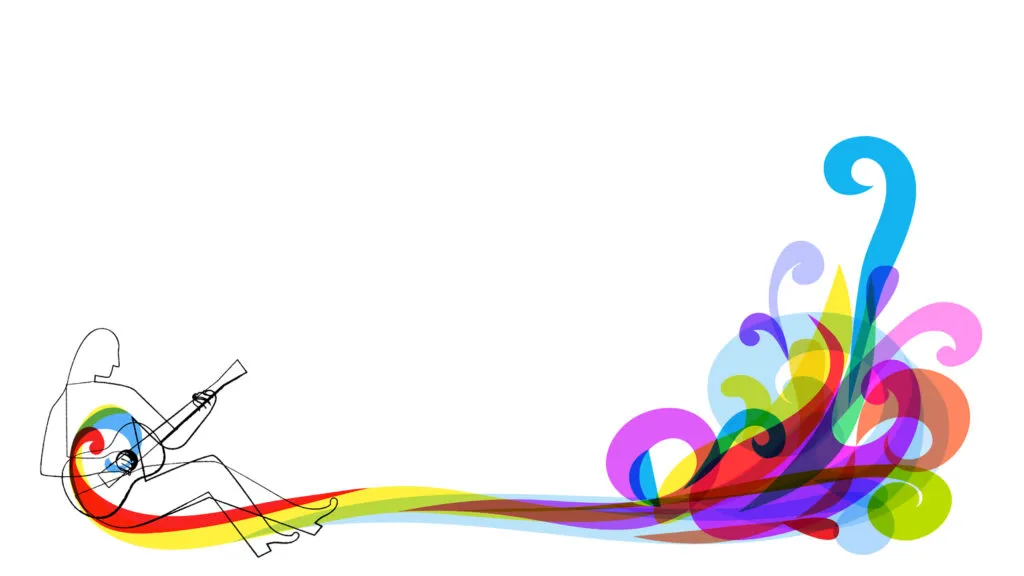Back in high school, one of my good friends invited me to the school’s Christmas concert, a performance of Handel’s Messiah. She would be playing the violin. I hesitated. I wanted to support my friend. The problem was that Messiah—which covers the birth, life and death of Jesus Christ—runs more than two and a half hours. Not exactly how I wanted to spend my Friday night.
I told myself I’d stay for an hour, then sneak out. So I took my seat in the auditorium. The lights went down, and I slouched in my seat, prepared to be bored out of my mind. But everything changed as soon as the first notes of the oratorio met my ears. Years later, I struggle to find the words to describe the feeling that filled me that day. It felt as if I’d encountered something divine. Sure, the story Messiah is religious, but that wasn’t what moved me so profoundly. It was the music itself in all its harmonic complexity that made me feel something only music could stir in me.
Words so often fail. Images fade. But music has the ability to transcend all those limitations—language, time, distance—to ignite something deep inside each of us. Ever since hearing Messiah in its entirety, I’ve wondered how a series of organized sounds can elevate our spiritual experience. And why.
I took my questions to John Robilette, a classical pianist who has performed for audiences all over the world. Something beautiful he’s noticed about his music is that it has the power to affect people in similar ways—regardless of the audience’s language barriers and cultural differences. “That’s what’s so wonderful about music,” he said. “It transcends differences. And you can feel it. You can feel it come across the room, the stage lights. It’s extrasensory. It’s a collective feeling. The emotions from people coming at you. You don’t know from where or how, but you feel it.”
Indeed, transcendence is the quality that has long tied music to spirituality. Worshipping God is tied to music—choirs, sung verses, chants. Before literacy was widespread, religious texts from all faith backgrounds were mostly sung, sometimes in languages that the congregation didn’t even understand.
Like Gregorian chant, a musical style inspired by earlier forms of plainsong that appeared in Jewish, early Christian and various Middle Eastern places of worship. It was sung in Latin, which in no way diminished its power to transport people.
From the beginning of Catholicism up until the twentieth century, Gregorian chant, a form of a capella, was routine in churches across Europe. Cathedral architecture even evolved specifically to amplify the otherworldly music, with cavernous ceilings and arching walls designed to reverberate and carry the acoustics to the farthest corners of the church. The feeling imparted by the music—of solemnity, meditative thought and divinity—transcended the bounds of language.
Now science backs up the feelings that churchgoers have experienced for centuries. Research shows that listening to Gregorian chant can be healing. This is because the chants are lacking instrumental accompaniment, encouraging the listener to unconsciously hone in on the rhythm of the vocals. The effect is a state synonymous with deep prayer and meditation.
Beyond putting the mind in a prayerful state, music can also relieve pain and promote healing. Yuval Ron, composer and author of the book Divine Attunement, says that this can be attributed to the vibrations created by melodies. “It is like receiving a subtle and sophisticated body massage. If sound vibrates the body at an effective frequency and appropriate volume, it yields healing effects.”
Researchers have observed as much. In a study at Khoo Teck Puat Hospital in Singapore, palliative care patients who took part in music therapy sessions experienced relief from their pain. “Music engagement allowed the patients to reconnect with the healthy parts of themselves, even in the face of a debilitating condition or disease-related suffering,” says music therapist Melanie Kwan, co-author of the study. The patients were comfortable enough to talk with loved ones and rest. In these cases, even when powerful pain medications didn’t work, music still reached people.
But why does music have such a powerful impact on our minds, bodies and souls? Yuval Ron says this is because music itself is a manifestation of divine energy. “It’s ethereal,” he says. “It’s not something that you can nail down or that you can make rules about. There’s no way to define it in a way the human brain can grasp.”
Even when the mind weakens, the brain’s regions connected to music remain untouched. Research indicates that the part of the brain that processes familiar music is activated despite degenerative brain diseases such as Alzheimer’s.
Take, for example, the story of Paul Harvey. A 79-year-old with dementia, Paul often has trouble remembering where he is or who the people are around him. “Sometimes he drifts into another world and I feel like I’m losing him,” his son, Nick, wrote in a viral tweet. “He is never more present, however, than when he plays the piano.”
When Nick came across his father’s 1981 song “Where’s the Sunshine?” and encouraged Paul to play it for him, Paul didn’t need the sheet music. Despite his dementia, he was able to perform the whole song perfectly—from memory. No one can explain exactly how something like this happens.
Music is a gift. A slice of heaven. A little bit of beauty that can be innately understood. Maybe that’s why it’s often the single avenue that remains when all else fails. But as John Robilette slides onto his piano bench and places his fingers on the keys, he’s not thinking about the hows and whys of it all.
“What principally interests me are the feelings,” he says. “The feelings music produces within people. The turn of a phrase. A harmony that touches your heart. The change in mood from a major to minor key. You can’t quantify it. And that’s the miracle.”






